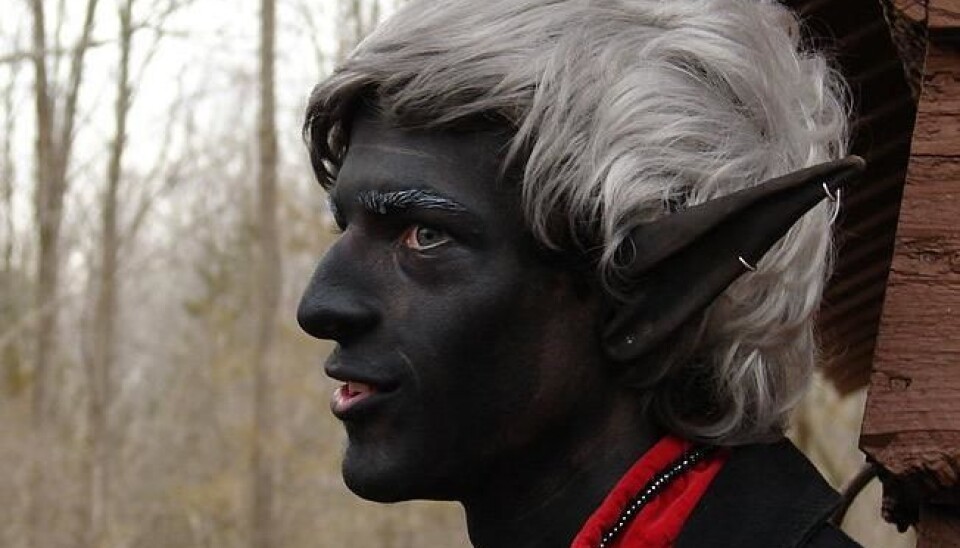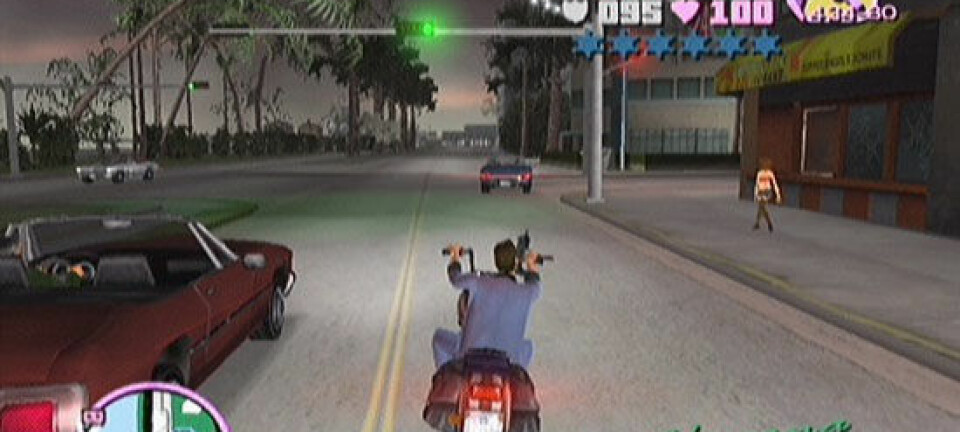
Role playing and religion function identically
Religious rituals and role playing both require agreement on the rules that maintain a ‘fantasy world’ in which churchgoers and game players find themselves.
Role games and religion have many things in common – both build on limiting reality with clear rules and rituals.
Players in live-action role games decide that the wood where their role game takes place is a kingdom. A church’s parishioners share an acceptance that the bread and wine of the Holy Communion are the body and blood of Jesus.
“In both the role game and religious rituals such as worship, the participants choose to believe in a certain constructed reality and in some defined but somewhat strange rules of behaviour for a period of time,” says Andreas Lieberoth, a computer game designer and a PhD student at Aarhus University’s Department of Psychology and Behavioural Science.
Together with J. Tuomas Harviainen, a Finnish researcher in information behaviour in live-action role-playing environments, Lieberoth has studied similarities between rituals and role games and the like, and has published the research article, ‘Similarity of Social Information Processes in Games and Rituals: Magical Interfaces’ in the journal Simulation & Gaming.
Enter a magic circle
In both the role game and religious rituals such as worship, the participants choose to believe in a certain constructed reality and in some defined but somewhat strange rules of behaviour for a period of time.
In order to maintain the common ‘extra layer’ that is constructed on top of reality, people taking part in religious rituals as well as role games must enter a state of pretence:
- Role-game players must believe that they find themselves in a fantasy realm, with dragons, swordfights, witches and orcs.
- Participants in religious rituals must jointly decide to accept that the altar wine is not wine but the blood of Jesus.
“What is interesting is their ability to relate to something that doesn’t exist in the real world – they enter a ritual room or a wood and pretend,” says Lieberoth.
“They enter a magic circle and re-interpret the whole of reality, psychologically as well as through their behaviour: the wine is Jesus’s blood, and your friend Steve is no longer Steve but the king of the elves.”
Joggers become elf scouts
In church, for instance, you ignore a nutter who suddenly cries out that he is Jesus, while game-players in the wood re-interpret joggers as scouts for elves, while cyclists become horse-riders.
If joggers in bright running gear and earplugs run through the role-game players’ fantasy world, or if a wine connoisseur suddenly starts to express an opinion about the bouquet, vintage and sweetness of the altar wine, both churchgoers and game-players try to patch up the breach in the fictive reality that they have created.
“In church, for instance, you ignore a nutter who suddenly cries out that he is Jesus, while game-players in the wood re-interpret joggers as scouts for elves, while cyclists become horse-riders,” he says.
“Each and every time there is a breach in the fictive reality they have created, they patch the breach immediately – otherwise the game or ritual would just collapse. And we’re socially and cognitively quite good at that, often unconsciously.”
“But he’s not wearing anything”
Breaking the fictive reality is called the Emperor’s New Clothes effect.
“All the participants have decided that the emperor is wearing fine new clothes,” says Lieberoth.
“But if people suddenly start listening to the little boy, then the fantasy collapses. Instead we quickly find an explanation that suits reality.”
Sects see the world in a certain way
Lieberoth observed at one point how a group of traditional board-game players altered reality.
In their game they went into a house where everything was dark. One of the players chose to climb a street lamp so he could look through a window. But when the players realised that there couldn’t be darkness and light at the same time, one of them suggested that the bulb in the street lamp had stopped working.
This mechanism is taken to its extremes when religious sects barricade themselves in, away from the world around them.
“A sect may believe it is important that its indoctrination ceremony takes place as far as possible away from external influences to ensure that only their information is present,” says the researcher.
“You see the same mechanism, but to a much lesser degree, when business people retreat to a closed bubble, where they can concentrate fully on meetings and personal development.”
The value of money
This type of constructed reality is not limited to games or religion, however. It’s everywhere – the whole of society is built up in layers that we have adopted, with laws that we obey.
“Money is a good example,” says Lieberoth. “Money only has a value because we have agreed on the value of our money. If we go to another country our money is worthless Monopoly money; we can’t use it there. Society keeps us within a constructed reality by sending counterfeiters, for instance, to prison.”
Translated by: Michael de Laine








